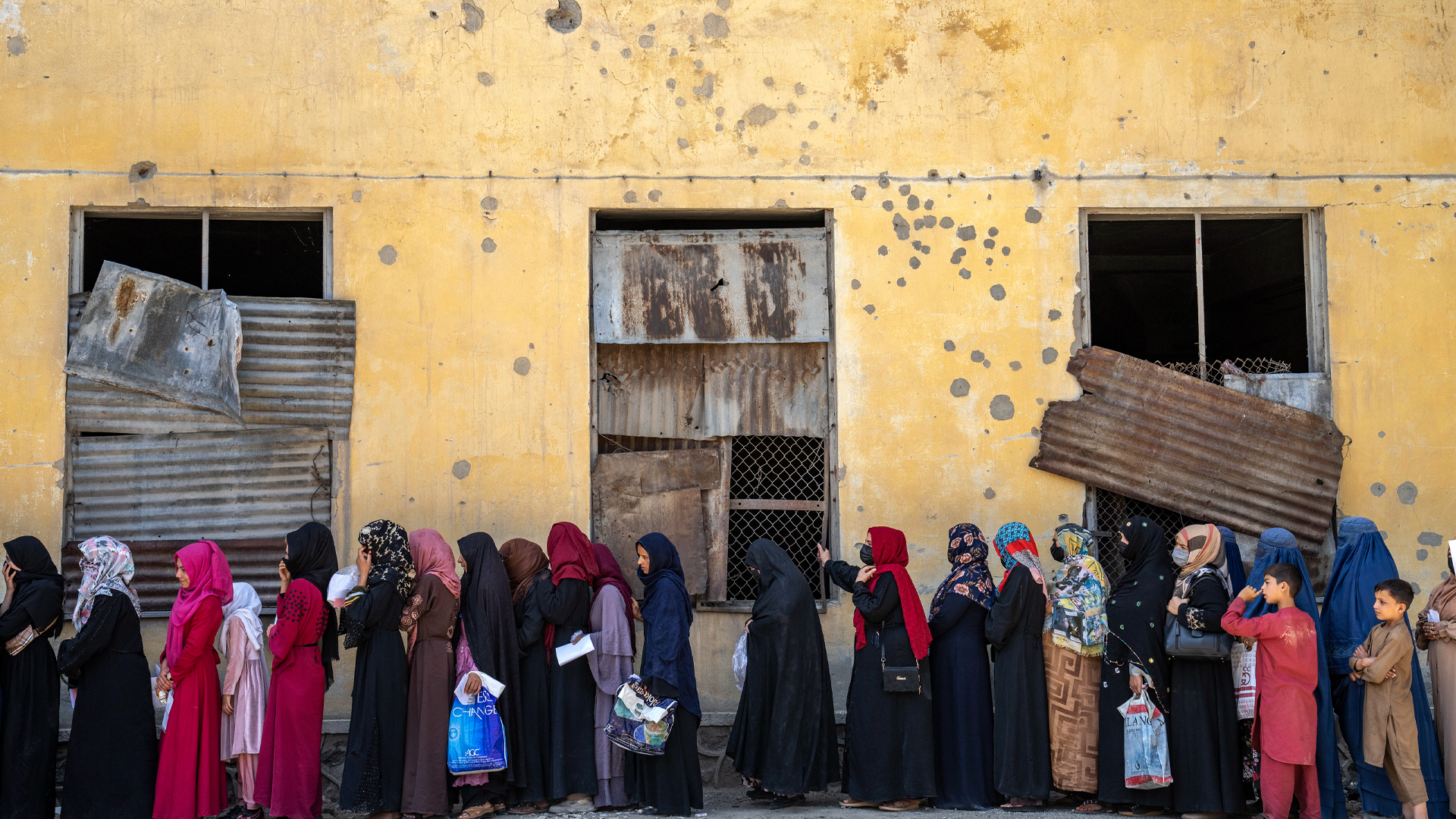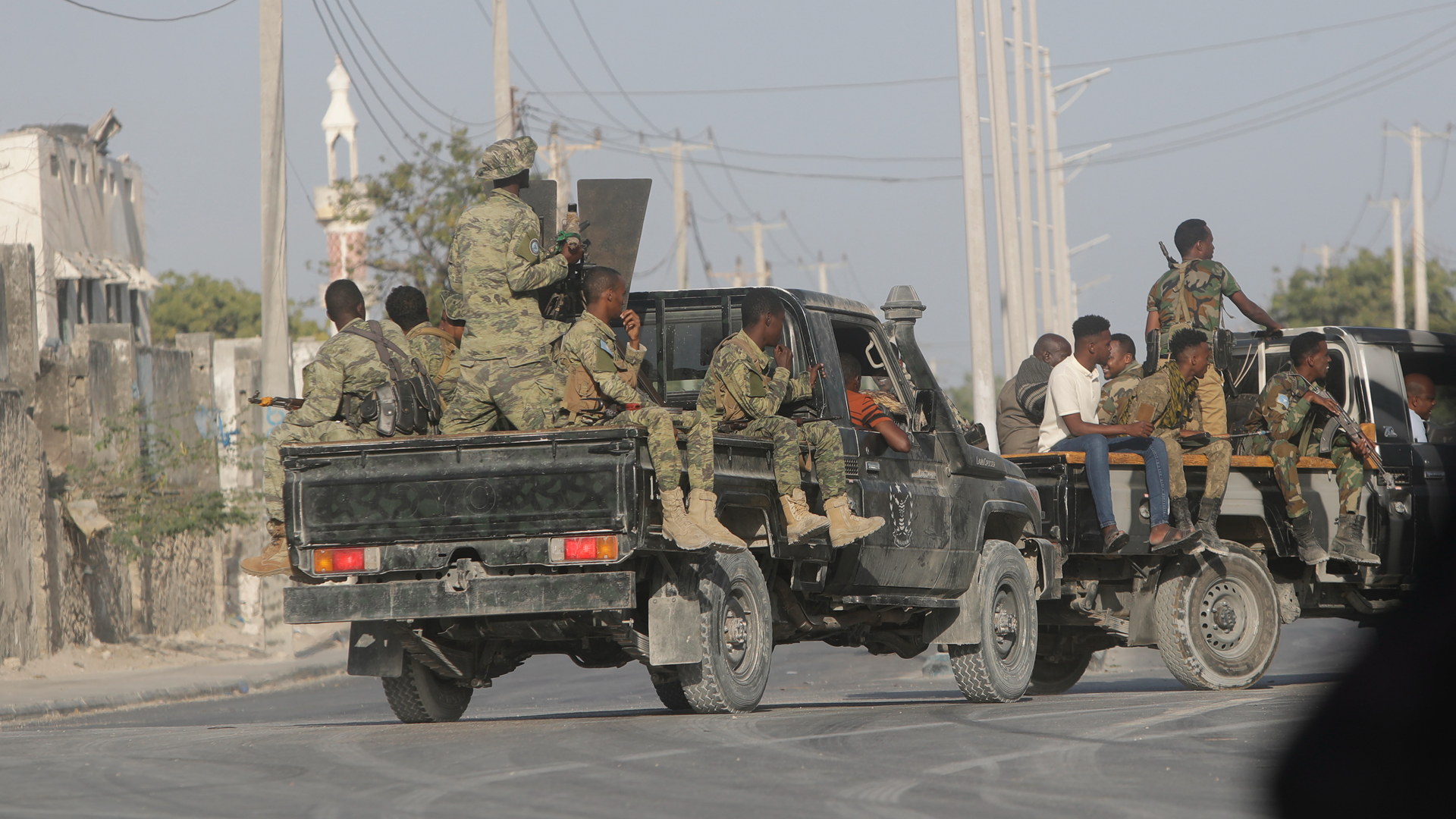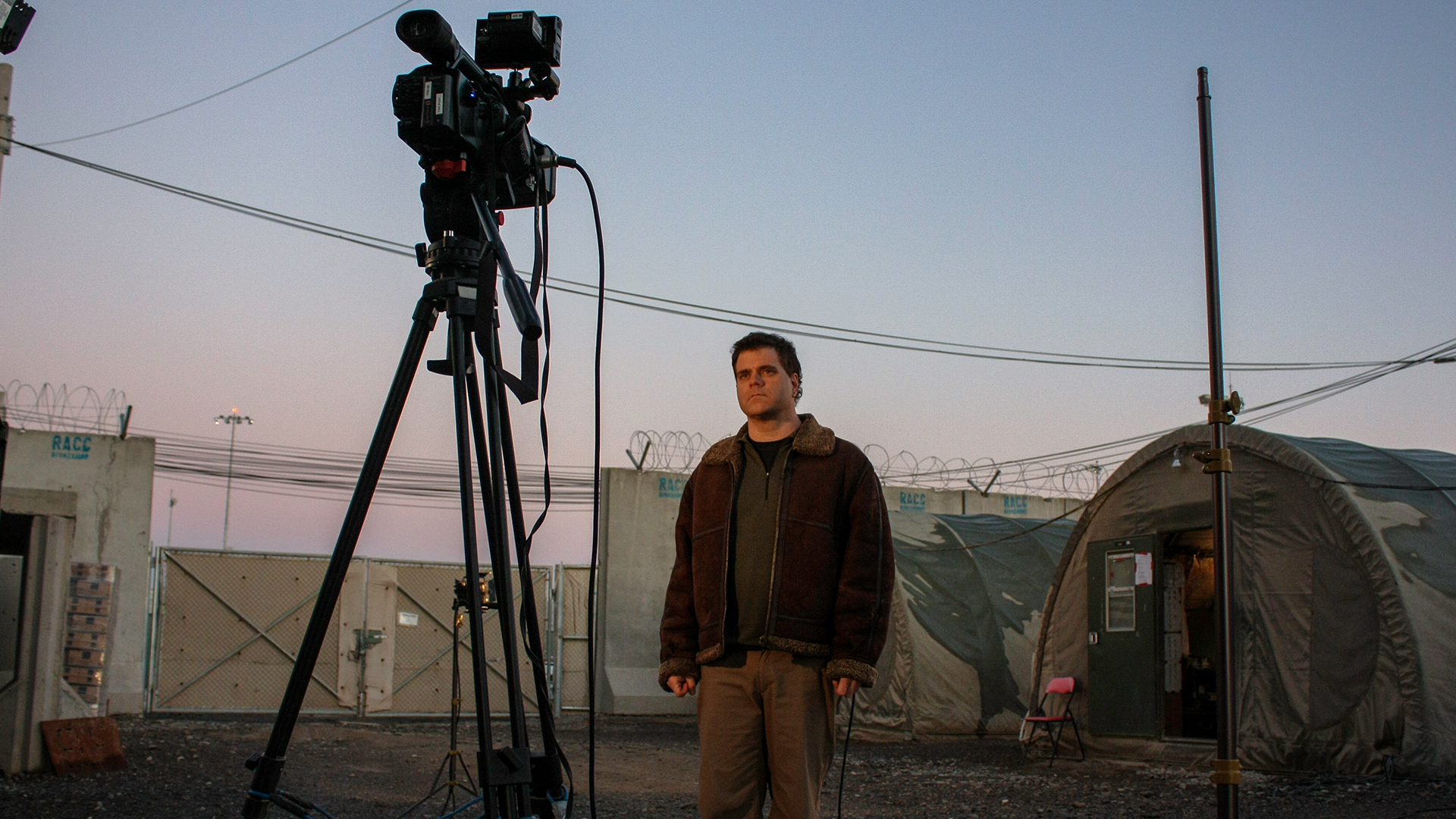
On September 18, 2005, I stood at polling stations in Logar Province and in Old Kabul to observe Afghanistan’s first parliamentary elections in over three decades. My most vivid image of that day was the sense of optimism and the high expectations of the voters. Nomadic Kuchi tribesmen, Pashtu villagers, Hezara labour- ers and some of the poorest women in the world all shared a sense that Afghanistan was at a turning point and that these elections, the final steps of the Bonn Process, signalled an end to three decades of violence and terror. In short, on that day Afghans believed that they would soon be able to get on with their lives without the crushing burden of fear that they had come to believe was normal.
Despite the palpable optimism of that election day, I was more than a little alarmed to learn that the government of the Islamic Republic of Afghanistan and its international partners had no real plan for the next steps. The Bonn Process had run its course, the structures of the state had been established (albeit without the human capacity neces- sary to deliver services to the people) and security seemed to be improving in most of the country. At a polling station in Logar Province I distinctly remember asking Canada’s first ambassador, Chris Alexander, ”œWhat happens next?” Despite his comprehensive knowledge of Afghanistan and his considerable influence in Kabul, he could not answer the ques- tion because, simply put, the plan did not exist!
Although the Bonn Process was an apparent success, there was no agreed strategic plan or framework to deal with the long-term state-building enterprise needed to address the major problems facing the nascent Afghan democracy. This lack of strategic vision has been typical of the Afghan mission from the beginning. The absence of a strategic plan at the end of the Bonn Process caused several months of intense effort to produce the Afghanistan Compact and the interim- Afghanistan National Development Strategy (i-ANDS) in time for the London Conference on the Future of Afghanistan that convened on February 1, 2006.
The team that I led for a year, Strategic Advisory Team ”” Afghanistan, played a small part in the development of both of these documents and I attended the conference with my team’s Afghan counterparts. The London confer- ence was another moment of high optimism. For the first time since the fall of the Taliban regime there was an agreed Afghan-international strategic framework and a common language. Promises were made, commitments given, and hope was the prevailing sentiment. That sense of hope would not last long. Within months the lack of strategic vision and the almost total absence of international cohesion in Kabul began to threaten the compact and i-ANDS. This lack of cohesion puts the entire state-building enter- prise at risk. To be clear, the Afghan mission can be lost on the battlefields of Kandahar Province, but it can be won only in Kabul.
The strategic failings of the past few years are dealt with adequately in the Manley Report. However, the debate in Canada continues to focus on the mili- tary aspects of the mission and questions surrounding the NATO commitment, troop reinforcements in Kandahar and government transparency. As important as these issues are, it is far more crucial to focus on the steps that are needed to achieve the strategic-level cohesion nec- essary to the success of both the joint Afghan-international effort and Canada’s crucial role in that effort. This article will focus on this coherence and will also propose some specific recom- mendations in respect to Canada’s gov- ernance and development priorities at the national level and in Kandahar Province. Finally, I will conclude with some comments about the import of this mission to the Afghan people.
Although there appears to be an international consensus on the need to establish Afghan-international strategic coherence, there does not appear to be any shared view of how to do this. While the recent appointment of the former Norwegian foreign minister, Kai Eide as UN special representative offers the promise of coherence, the United Nations Assistance Mission in Afghanistan (UNAMA) remains marginal to the dynamic in Kabul. In short, Eide’s appointment holds the potential to redress this situation but would not, by itself, be sufficient to achieve the neces- sary coherence. A few of the most power- ful states represented in Kabul, as well as some of the most important develop- ment agencies, have consistently weak- ened the possibility of UN leadership by their insistence on following national and organizational agendas and priorities instead of those laid out in the compact.
The roots of this problem lie in the period immediately following the fall of the Taliban. The US consciously lim- ited the role and authority of the UN, and the dysfunctional ”œlead nation” system of the Bonn Process proved to be a structural barrier to cohesion. On the security front, American insistence that the International Security Assistance Force (ISAF) confine its efforts to Kabul resulted in the creation of two parallel military chains of com- mand and a security vacuum, especial- ly in the southern provinces. Even though most military operations are now under ISAF command, Special Forces and Afghan National Security Force reform and training activities remain under a separate US command.
Clearly this lack of cohesion is untenable, and if UNAMA is to be effec- tive, the appointment of a special envoy must be accompanied by expressions of full political-level support and genuine behavioural change on the ground. Canada’s political leaders can, and must, leverage this nation’s hard-earned influ- ence and political capital to exercise leadership in developing the interna- tional political will that is absolutely necessary for success in Kabul.
It is evident that Canada’s ”œwhole of government” approach has matured greatly in the past two years and that the recent striking of a cabinet commit- tee, supported by a task force located in the Privy Council Office, promises to strengthen the cohesion of the Canadian effort. With the passing of the parliamentary motion on March 13, a Special Parliamentary Committee on Afghanistan will be able to exercise oversight over the mission and ensure ministerial accountability.
These positive steps must now be supported by the develop- ment of a comprehensive public strategy that defines Canadian objectives in Afghanistan (the ”œends”), the organizations, methods, priorities and benchmarks to accomplish these (the ”œways”) and the resources, both human and financial, committed (the ”œmeans”). This strategy must accord with the compact and serve as the authoritative guidance for Canada’s ”œwhole of government” effort. It would permit parliamentarians to monitor progress and, at the same time, fully inform Canadians as to our national objectives in Afghanistan and how the government intends to achieve them. Taken together, the new cabinet com- mittee, the task force in PCO, the special parliamentary committee and a public Afghan strategy can only improve national strategic coherence.
By its very nature the Westminster system, based on ministerial accounta- bility, is not conducive to the ”œwhole of government” approach. In addition, soldiers, diplomats, development offi- cials and police and corrections officers have all been formed by the functional imperatives and institutional cultures of their respective organizations. The steps described above mitigate these challenges in Ottawa but they must be supported by structural changes on the ground. Not only does Canada’s Afghan strategy need to be coherent in Ottawa, it must be seamlessly coordi- nated in Kabul and Kandahar.
Despite the strong diplomatic skills of our foreign service officers, the lead- ership and management of a complex, multidimensional operation such as the Afghan mission is simply not a core competency of Canada’s ambassadors, nor is it an appropriate role for senior military commanders. To overcome this, the Prime Minister should appoint a prominent and experienced Canadian as a special envoy with the authority to act as the head of Canada’s country team and a specific mandate to ensure that Canada’s Afghan strategy is coordinated. This envoy should report to the PM, and he or she should be supported by a strategic coordination team of approximately four experienced people with experience in Afghanistan and expertise in security, governance and development as well as proven planning and coordination skills at the strategic level. The members of this team should not be serving sol- diers or public servants, so as to ensure their independence from the natural bureaucratic pressures that would cer- tainly affect their judgments. This team would advise the PM’s envoy, review all projects and activities to ensure strate- gic coherence and act as the envoy’s eyes and ears throughout the country.
Every single Canadian effort in the security, governance and develop- ment pillars of the compact must be designed to strengthen the legitimacy of the Afghan government. Much of the Canadian International Develop- ment Agency’s support of national pro- grams has been successful in this regard. For example, CIDA support of the National Solidarity Program has not only resulted in the positive outcomes that other witnesses have described, it has also been one of the major reasons that the Ministry of Rural Rehabilita- tion and Development (MRRD) is one of the most credible arms of the Afghan government. Making more ministries, and the administration of Kandahar Province, as effective as MRRD should be our objective.
It is this aspect of the strategy that raises concerns about the idea of a ”œsig- nature project” in Kandahar. For example, renovating the Mirwais Hospital and slapping a Canadian flag on it does nothing to legitimate the Afghan government. In fact, it could send Kandaharis the clear message that Ottawa can do more for them than Kabul. That said, the CIDA minister has already telegraphed the govern- ment’s intent to pursue a signature project. Any such project must be designed in partnership with the Afghan government and the commu- nity. Most importantly, it must rein- force the governance pillar and Afghan government legitimacy by ensuring properly supported Afghan leadership and ongoing capacity building.
There is so much need in Afghanistan that every single devel- opment partner must set priorities and leverage its strengths. The single greatest need, cited in report after report, is human security ”” the kind of security that can be provided only by a clean and effective government, supported by a professional public administration sys- tem, effective conflict resolution and judicial systems and security forces that perform their ”œduty with honour.” Canada should focus its traditional strengths in these areas at both the national and subnational levels.
Public administration and gover- nance reform efforts in Kabul have been ill-disciplined and fragmented since the fall of the Taliban regime. Despite the expenditure of large amounts of money and the presence of hundreds of interna- tional technical assistants, there is still no comprehensive strategy to reform the entire system and its processes. Canada should exercise leadership in this area by working closely with the UN and the World Bank to develop the necessary strategy and to focus international efforts. The actual shape of this effort needs further analysis but it could range from the provision of senior officials to manage the program, to reinforcing Strategic Advisory Team ”” Afghanistan with governance professionals and widening its mandate accordingly.
There is also a desperate need to extend good governance to Kandahar Province. The entire subnational gover- nance structure in Afghanistan is prob- lematic ”” corruption, weak capacity and arbitrary decision-making are all common. Clearly, projects intended to correct this situation in Kandahar should be a Canadian priority. This must include projects designed to reform the public administration sys- tem, the police and security forces, the penal system and the control of public finances. At the same time, Canadian efforts must also focus on assisting the Afghan government in its efforts to deliver basic services to the population.
In the simplest terms, most Afghans want the same things that Canadians wanted in 1867 ”” peace, order and good government. Our devel- opment aid efforts must focus on help- ing them achieve this.
The importance of this mission to the people of Afghanistan cannot be overstated. One of the best known quotes from the Melian Dialogues ”” ”œThe powerful exact what they can, and the weak grant what they must” ”” summarizes the plight of the Afghan people. This expression of political realism has characterized Afghan history, politics and society for far too long. Overcoming the predators is crucial to the future of Afghanistan and its people. This will take time ”” a long time. It is simply impossible to repair the damage wrought by three decades of conflict in a matter of a few years. It is easy to see the physical damage to the coun- try’s infrastructure and institutions and it is repairable with money and time. On the other hand, it is far more difficult to see the damage that constant conflict has done to the social fabric of the country, and the issues of human security, good gover- nance and human capacity are far more difficult to fix than are bridges, roads and schools.
The international community has failed, because of a lack of strategic vision and, in some cases, strategic hubris, to establish the conditions required for human security and good governance. I believe that Canada can help rectify this reality by exercising leadership internationally and in Kabul. The first steps have been taken in Ottawa. I strongly believe that the development of a public Afghan strate- gy, the appointment of a prime ministe- rial envoy supported by a strategic coordination team and a development focus that reinforces the legitimacy of the Afghan government in both Kabul and Kandahar would, over time, rectify most of the strategic errors of the past few years.
Afghanistan and Afghans are often complex and contradictory. Proud, hard-working and resilient, the Afghan people have learned to survive the worst. The Soviet invasion, a vicious civil war, the Taliban, US bombing and now, a persistent insurgency have com- bined to destroy the state’s institutions and society’s traditional mechanisms of conflict resolution. The internation- al community has not, thus far, been successful in its efforts to assist the Afghans in developing an effective gov- ernance system. Afghans’ biggest fear is that the international community will, in its frustration with slow progress, confusing politics and weak gover- nance, ”œblame the victim” and simply abandon Afghanistan again.
Others have made the national interest argument against this course of action. Perhaps strangely for a former soldier, I will emphasize the human aspects of this mission. Afghanistan is at or near the bottom of every single UN Human Development Indicator. Canada, a country at or near the top of the same indicators, made a strong commitment when we signed the compact in 2006. We reinforced that commitment when the UN Security Council endorsed it, and we have fur- ther strengthened it with the human sacrifice that we are all too well aware of.
Opponents of the mission often recite the litany of failures and issues as proof that stabilizing Afghanistan and ameliorating its grinding poverty is ”œmission impossible,” and that abandoning the country is the only option. This is simply wrong-headed and would consign Afghans to a few more decades of predation and vio- lence. At the same time, it would be folly to adopt a simplistic ”œstay the course” approach, which would result only in the repetition of the strategic failures that have had such an adverse impact on the Afghan mission.
The only moral response is to absorb the lessons of the past few years and exer- cise the kind of political leadership need- ed to make the necessary changes to the Afghan strategy. Canada’s political leaders have developed a parliamentary con- sensus that will extend the military com- mitment in Kandahar until 2011. There should be no doubt, however, that the Afghan state-building enterprise will take decades. To be successful, it will take both political will and strong political leader- ship to develop and implement the essential Afghan-international strategy. Canada and Canadians have reason to be proud of our traditional leadership role on any number of international issues ”” the formation of NATO and the UN, peacekeeping, the land mine treaty and the International Criminal Court all come to mind. It is time for Canada’s leaders to move beyond the politics of our own national debate and to grasp the challenge of international leadership pre- sented by the Afghan mission.







